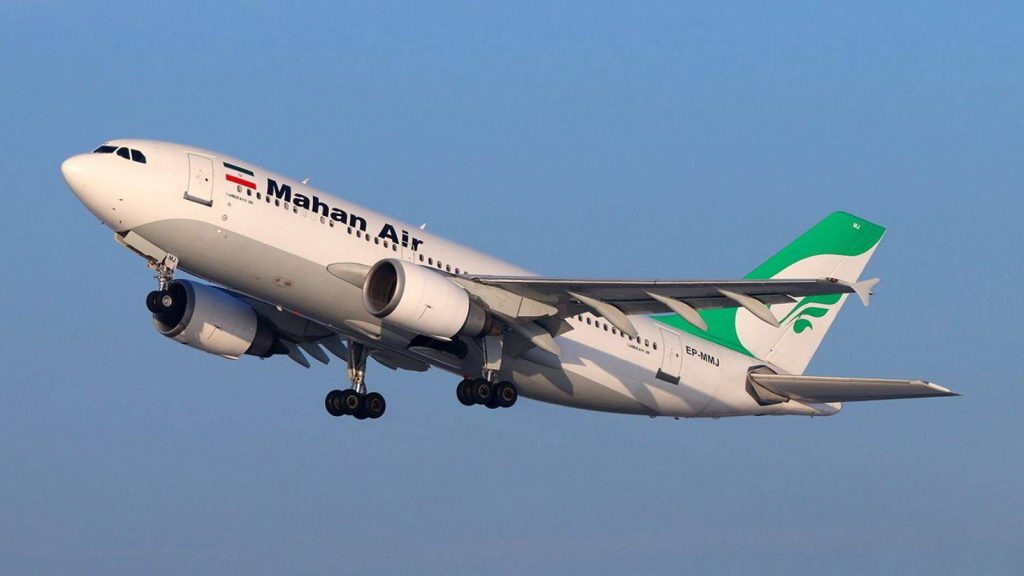FRESH AIR
‘Aeroterror’ Reborn
May 1, 2019 | Oved Lobel

In 2007, Venezuela’s state-run airline Conviasa began flying a route to Tehran via Damascus in partnership with Iran Air. The planes, however, were never filled with tourists – Instead, they would allegedly depart Caracas every week loaded with drugs and cash and return from Iran and Syria with weapons and operatives of the Islamic Revolutionary Guard Corps (IRGC) and its Lebanese branch, Hezbollah, as well as other Iranian intelligence agents and even Hamas members.
According to agents tracking Hezbollah criminal and terrorist activities across the globe, Venezuela would provide these operatives with fake identities and travel documents, which they used to “spread throughout the subcontinent and set up shop in the many recently opened Iranian consulates, businesses and mosques.” The flights, cutely nicknamed ‘Aeroterror,’ were allegedly halted in 2010.
Until April 8, 2019, when a new and improved version of ‘Aeroterror’ made its maiden flight to Caracas. This time, it is Iran’s Mahan Air – a private airline banned by Germany and France and sanctioned by the US for providing “transportation, funds transfers and personnel travel” for the IRGC and Hezbollah – that will be responsible for ferrying these operatives to Venezuela to shore up Nicolas Maduro’s rule in conjunction with Conviasa.
Already in January, Hassan Nasrallah, the Secretary-General of Hezbollah, reportedly pledged military advisors and specialists to protect key security facilities for Maduro. Around the same time ‘Aeroterror’ was revived, Iran’s Foreign Minister Javad Zarif suggested further IRGC deployments to Venezuela to reinforce the regime.
These Iranian activities are not merely a response to a friendly regime under siege. The relationship, after all, is long-standing and expansive, with Iran present at almost every level of the regime and its security services alongside the Cubans, who run Venezuela as a virtual colony. During recent Congressional testimony, Latin America policy analyst James Humire listed more than 2,000 Venezuelan passports given to suspected IRGC agents and their proxies. Many senior IRGC officers from its expeditionary Quds Force (IRGC-QF), joined the Venezuelan security structures, according to Peter Brookes, a former Pentagon and CIA analyst, and were responsible for overseeing training and advising for various security elements.
A recent article by Emmanuele Ottolenghi and Matthew Zweig, both Senior Fellows at the Foundation for Defense of Democracies think tank, lays out a strategy for strangling the renewed Iran-Caracas air link with sanctions and impoundment. Mahan Air, the authors argue, is already under intense pressure, and despite being the sole Iranian carrier with new long-range jets, only possesses 13 planes capable of flying directly to Caracas. Working with allies in Europe, the Middle East, and South America, the US can block off airspace, raise transit fees, and even impound the jets once they land in friendly countries.
While the US should absolutely follow this advice, Iran is unfortunately not the only country flying long-distance to the aid of Maduro. He will likely be able to rely on Venezuela’s effective alliance with Russia and Turkey to fill in any gaps that result from US pressure.
Erdogan was the first leader to express support for Maduro against the United States, and in 2016 established a direct Turkish Airlines flight between Caracas and Istanbul to ferry Venezuelan gold, likely to continue Turkey’s “Gas-For-Gold” sanctions evasion scheme to undermine US pressure on Iran. Its intermediaries for the gold trade with Venezuela are Tareck El Aissami – virtually an IRGC agent and the lynchpin of Venezuela’s relationship with Syria, Iran, and Hezbollah in his previous capacities as Venezuela’s Interior Minister, Vice President, and currently Minister of Industries and National Production – and Alex Nain Saab Moran, who is intimately involved with Hezbollah’s criminal operations in South America on behalf of Maduro. There is good reason to suspect that Erdogan would allow the IRGC to use Turkish Airlines as a fallback if US pressure on Mahan becomes too great.
Then there is Russia, which has flown in at least 100 military specialists – including cybersecurity personnel to manage surveillance against the opposition and protect the regime’s communications – on multiple long-range flights to Venezuela to repair military equipment and operate a helicopter training base. On top of this, Russia reportedly flew in hundreds of “Wagner” mercenaries to defend Maduro. These flights, which are arriving from Syria and may already be transporting some IRGC officers, haven’t stopped, and Russia has tried to send naval warships to Venezuela with arms and equipment, as well. As in Syria, where Russia and Iran planned a joint intervention in which Iran would provide the bulk of the ground forces, the two countries could come to a similar arrangement in Venezuela if need be. In any case, their actions are already being coordinated, and Russian transports helping ferry Iranian forces and weapons are hardly unprecedented. As for Turkey, private planes continue flying from Turkey to Venezuela via Moscow, suggesting some coordination.
As Venezuela looks to be descending into civil war, halting ‘Aeroterror’ needs to become a major priority for the US and its allies. This will mean implementing not only the recommendations of Ottolenghi and Zweig, but also closing off any Turkish and Russian attempts to pick up the slack if the going gets too tough for Mahan Air to continue by itself.
RELATED ARTICLES

US Middle East strategy amid regional instability: Dana Stroul at the Sydney Institute

Antisemitism in Australia after the Bondi Massacre: Arsen Ostrovsky at the Sydney Institute





















